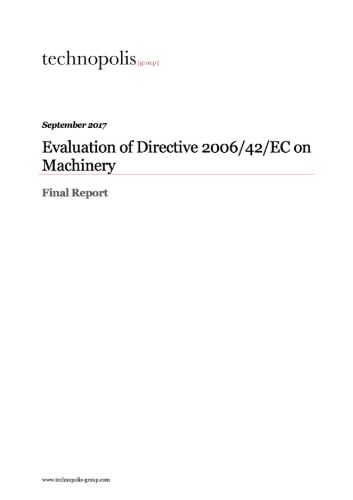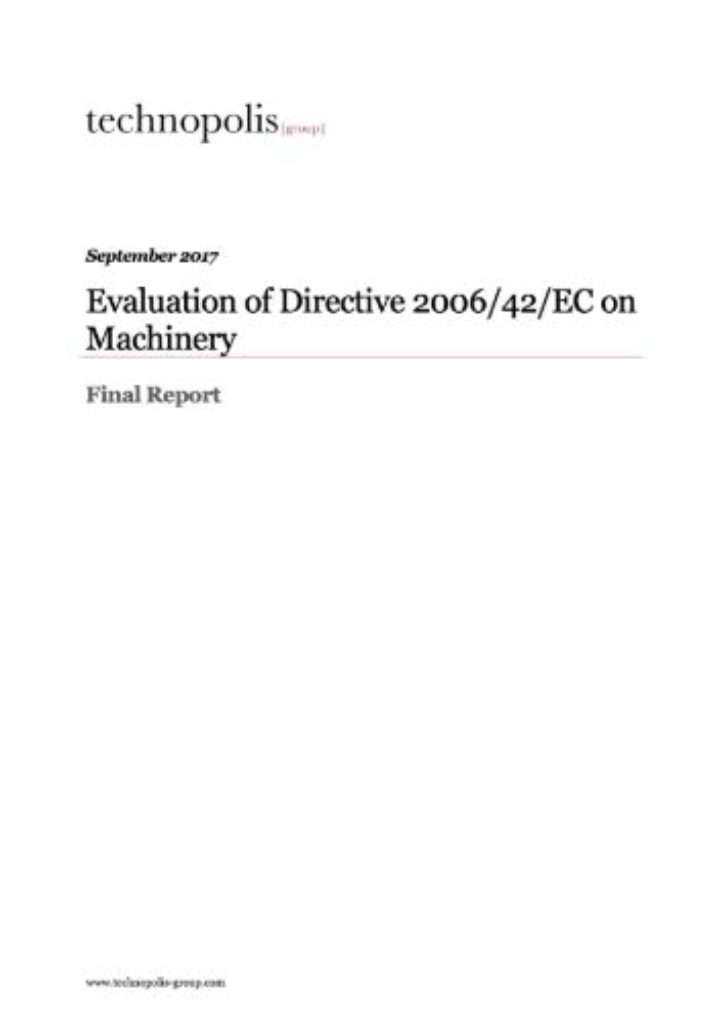Evaluation of Directive 2006/42/EC on Machinery
Publication date: 30 September 2017 | Report language: EN
One of the main pieces of legislation governing the harmonisation of essential health and safety requirements for machinery at EU level is the Machinery Directive (2006/42/EC). This seeks to promote the free movement of machinery within the Single Market and guarantee a high level of protection for users through a system of mandatory health and safety requirements and voluntary harmonised standards.
Technopolis Group was commissioned to evaluate the Directive in 2016-17. The study team reviewed the performance of the Directive and sought to determine the extent to which it is fit for purpose, providing evidence that could form the basis for possible future legislative initiatives. The study concluded that the objectives of the Machinery Directive remain entirely relevant to market needs and that the Directive (in its concept and intentions) is an entirely appropriate response to these aims.
Some conclusions include:
- Global costs incurred as a result of the Directive are far outweighed by the costs savings from improved health and safety.
- There are likely to be multi-million Euro savings as a result of a single European market for machinery.
- The Directive has maintained its relevance over time, but new innovations – e.g. in digitisation, robotics, software and autonomous control – continue to test its suitability.
- Some discrepancies exist in the application and interpretation of requirements, particularly in relation to monitoring and enforcement activities.
Key suggestions arising through the study for improving the Directive in future included: adapting it to fit with the New Legislative Framework; considering its suitability for new areas of business/technology; simplifying the risk assessment process; improving demarcations between different types of machinery; improving convergence with other similar Directives and Regulations; and taking additional action to increase and improve inspections.





